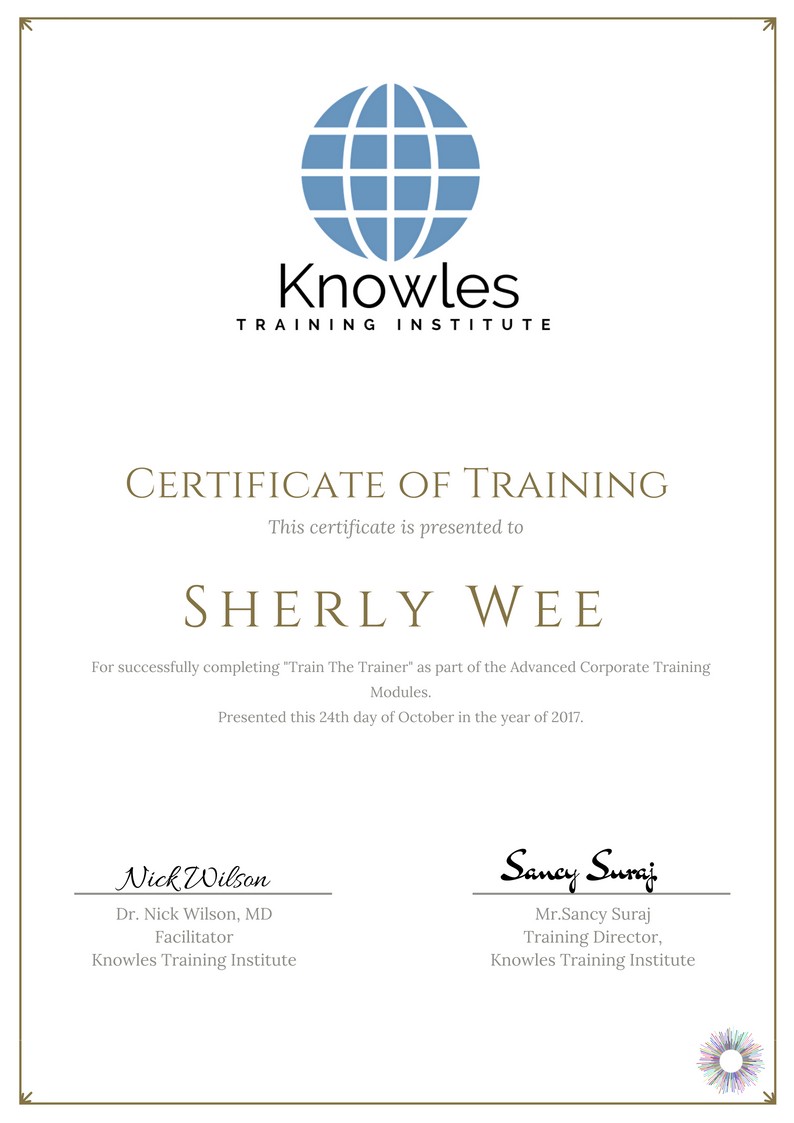Train The Trainer Course In Poland
Our corporate training course is also available in Warsaw, Kraków, Łódź, Wrocław, Poznań, Gdańsk, Szczecin, Bydgoszcz, Lublin, Białystok, Katowice, Gdynia, Częstochowa, Radom, Sosnowiec, Toruń, Kielce, Rzeszów, Gliwice, Zabrze, Olsztyn, Bielsko-Biała, Bytom, Zielona Góra, Rybnik, Ruda Śląska, Tychy, Opole, Gorzów Wielkopolski, Dąbrowa Górnicza, Zakopane, and Sopot.

About This Train The Trainer Training Course in Poland
Train The Trainer Course in Poland
Train the Trainer Training (TTT) is a teaching approach applied for trainers-to-be.Training participants, the future trainers, will be taught and trained about the training methodologies so that they can train others effectively. This train the trainer course is also suitable for corporate training professionals who want to hone their skills further. Whether you are planning on being a professional trainer, or you are someone who does a bit of training as a part of their career, you always want to be prepared as a trainer. Training participants will understand that training is a means where skills, knowledge, and attitudes are applied uniquely.
Our Train-The-Trainer training Course in Poland workshop will provide training participants with the skills to help them deliver engaging and compelling training workshops. Training skills such as facilitation, conducting training needs analyses, and managing tough topics will provide our trainees with what they require to become a trainer highly effective trainer themselves.
Who Should Attend This Train The Trainer Course in Poland
This Train The Trainer Course in Poland workshop is ideal for anyone who would like to gain a strong grasp and improve their Train The Trainer Training Program.
All Staff Within An Organisation
Managers
Team Leaders
Executives
Assistants
Officers
Secretaries
Group Size For This Train The Trainer Training Program in Poland
The ideal group size for this Train The Trainer course in Poland is:
Minimum: 5 Participants
Maximum: 15 Participants
Course Duration For This Train The Trainer Skills Course in Poland
The duration of this Train The Trainer workshop is 2 full days. Knowles Training Institute Poland will also be able to contextualised this workshop according to different durations; 3 full days, 1 day, half day, 90 minutes and 60 minutes.
2 Full Days
9 a.m to 5 p.m
Train The Trainer Course in Poland Benefits
Below is the list of course benefits of our Train The Trainer course in Poland
Train The Trainer Course in Poland– Course Benefits Part 1
- Acquire knowledge to develop effective coaching programs for individuals and organizations
- Incorporate training of employees to improve leadership skills.
- Acquire knowledge and skills needed to convey information in a compelling manner to employees, managers and customers.
Train The Trainer Course in Poland – Course Benefits Part 2
- Learn how to effectively train in today’s business environment.
- Acquire knowledge to develop training programs that lead to better employee outcomes.
- Gain strategies and techniques for delivering high-quality workplace training.
Train The Trainer Course in Poland – Course Benefits Part 3
- Apply training skills in the workplace to develop talented corporate trainers.
- Incorporate the qualities and skills of trainers to enhance public speaking and presentation skills of participants during corporate trainings.
- Apply knowledge gained on development of training the trainers program to improve the design of training.
Train The Trainer Course in Poland – Course Benefits Part 4
- Apply the knowledge acquired on the learning styles of adults to develop appropriate adult learning methodologies in trainings.
- Incorporate effective training skills in trainings to enhanced audience engagement.
- Use the skills acquired to develop effective participant assessments and evaluation of program.
Train The Trainer Course in Poland – Course Benefits Part 5
- Gain soft skills important for planning, coordinating and conducting a corporate training.
- Apply the knowledge acquired on training to improve training and development of employees.
Train The Trainer Course in Poland Objectives
Below is the list of course objectives of our Train The Trainer course in Poland
Train The Trainer Course in Poland – Part 1
- Understand the concept of train the trainer within corporate companies.
- Understand the importance of training the trainer program for employees and companies.
- Know the structure and framework of training the trainers at the workplace.
Train The Trainer Course in Poland – Part 2
- Know the characteristics and qualities of an exceptional trainer.
- Explain how the various learning styles of adults and how it differ from those of children
- Understand the developmental approaches of training the trainers.
- Understand the different behavioral styles of trainees and adapt training as necessary in order to meet the set training objectives.
Train The Trainer Course in Poland – Part 3
- Know what a well designed program for training the trainer looks like and replicate that knowledge in development of training programs.
- Understand the importance of conducting a training needs analysis for a prospective training program for corporate organizations.
- Understand the various methods of exciting lecture-base plans for training of trainers.
Train The Trainer Course in Poland – Part 4
- Know the strategies for handling challenging environments and disruptive participants in trainings.
- Understand how to choose the best seating arrangements for effective hands-on learning during training courses.
- Discover how to present information in a clear, concise and highly engaging manner to training participants.
Course Content For This Train The Trainer Training Course in Poland
Below is the list of course content of our Train The Trainer training course in Poland
Train The Trainer Training Course in Poland – Part 1
- What is Training?
- Learning can take different forms, moreover, in terms of training, our purpose is to produce about a behavioural change in something that we do. Training is not an event where we attend a course for a day and envision the desired behaviour to take place the very next day. Training is a gradual process.
- What is Facilitation?
- A trainer may have certain information that training participants do not have coming into a training course. A facilitator on the hand, may not have the same experience or knowledge in the particular subject matter that the training participants have. The responsibility of the facilitator is to provide expertise in sharing, learning, discussion for training participants.
- Identifying Appropriate Training Situations
- A facilitator utilises their knowledge of group processes and dynamics when planning their meeting. Training facilitators may make use of their skills to run a workshop or a even a meeting where participants are problem solving, addressing pressing business needs, or preparing for the future goals of the company.
- Identifying Participant’s Training Needs
- A good needs analysis has three basic steps. Understand who your participants are.Your training is devised specifically to meet the needs of every person in the workshop, right?
- Reviewing the Training Materials
- Once you have your needs analysis complete and understand what kind of training that you need to design, you can begin to gather materials that will help you reach your objectives. Training materials are a crucial component of training. It is important to make sure that the training materials are up to date and applicable.
Train The Trainer Training Course in Poland – Part 2
- Identifying and Resolving Skills Gaps For Training
- Now that you know what your training objectives are, and you have your training materials assembled, take some time to formally evaluate where the gaps are in learning so that you can design a contextualised training plan.
- Planning for the Basics
- A lesson plan may bring back memories of being in school but you will need a lesson plan for training adults as well.. A good lesson plan will ensure that you have catered for all of the required elements into your training program.
- Adding Slack Time During Training
- There are different ways that you can build flexible time into your training.
- A backup training plan is a crucial contingency in your training plan so that you can avoid disasters or at least reduce their effects and maintain your professional decorum throughout your training program.
Train The Trainer Training Course in Poland – Part 3
- Types of Training Activities
- Trainees want training to be engaging, entertaining fun. However, this does not imply that you have to be a comedian. There are many trianing tools and methods you can use to make your training highly engaging for your training participants.
- Preparing for Emergencies
- This section covers training emergencies, how to prepare for them and prevent them in case one occurs.
- What to do when Training Activities Go Wrong
- Even if we create bullet-proof trianing courses and plans, it is also vital to recognised that a training activity that have worked with one group may not work with another.
- Creating a Training Materials List
- When it comes to training materials, being over-prepared is a great idea.
Train The Trainer Training Course in Poland – Part 4
- Gathering Training Participant’s Information
- The more work you can put into learning about your potential training participant, the better you can design a training program that targets their needs.
- Setting Up the Physical Training Location
- An ideal training room set up is comprised of many factors that are important to consider.
- Greeting The Training Participants
- Greeting training participnats is an important part of training. It can make or break a first great impression of a trainer.
- Being Prepared For Training
- To be ready to welcome participants to your training, you must be prepared.
- Using Icebreakers and Energisers During Training
- Icebreakers are important opener for training. Openers help to prepare people for training.
Train The Trainer Training Course in Poland – Part 5
- Using Visual Training Aids
- Humans can think much faster than we speak. Visual aids will help training participants understand your subjects better, faster.
- Creating Supporting Training Materials
- There are various forms of training materials that must be utalised during training.
- Breaks During Training Sessions
- By observing the body language of your training participants you will be able to gauge when your group needs a break from training. Learn how to include breaks in your trianing plan.
- Encouraging Training Participants During Discussion
- To fully engage participants through discussion, it is impotntat to keep this term in mind: “instructor-led, participant-directed”.
Train The Trainer Training Course in Poland – Part 6
- Using Group Work During Training
- In order to make group activities work for you as a trainer there are certain methods you must be aware of.
- The Power of Sticky Notes
- Sticky notes don’t just add colour to your presentation; they can also add value as a visual aid.
- The Ground Rules of Training
- Rules assist trainers to establish a condusive learning environment.
- Challenges and Solutions During Training
- Learn how to overcome different challanges during training.
Train The Trainer Training Course in Poland – Part 7
- Handling Interruptions During Training
- There are times when there maybe unruly training participant. Learn how to handle them effectively.
- Adjusting Your Training Material for a Sensitive Issue
- Sometimes the unforeseen can arise in an otherwise harmless training session. Learn how to make your training materials more politically correct.
- Dealing With Sensitive Issues During the Training Workshop
- Learn to provide an attitude survey before a tough topic is discussed.
Train The Trainer Course in Poland Value Added Materials
Each participant will receive the following materials for the Train The Trainer course in Poland
Train The Trainer Course in Poland Learner’s Guide

Train The Trainer Course in Poland Handouts

Train The Trainer Course in Poland PPT Slides Used During Course

Train The Trainer Training Program in Poland Certification
Each course participant will receive a certification of training completion

Course Fees For Train The Trainer Training Course in Poland
There are 4 pricing options available for this Train The Trainer training course in Poland. Course participants not in Poland may choose to sign up for our online Train The Trainer training course in Poland.
USD 679.97 For a 60-minute Lunch Talk Session.
USD 259.97 For a Half Day Course Per Participant.
USD 419.97 For a 1 Day Course Per Participant.
USD 569.97 For a 2 Day Course Per Participant.
Discounts available for more than 2 participants.
Upcoming Train The Trainer Course in Poland Schedule
Contact us for the latest This Train The Trainer course in Poland schedules:
Email: contact@knowlesti.pl
Message:
Download Train The Trainer Course in Poland Brochure

Request for this Train The Trainer Course in Poland brochure. Fill up the short information below and we will send it to you right away!
Post Training Support: A vast majority of training does not have any effect beyond 120 days. To work, training has to have a strong pre- and post-training component. Post-training reinforcement helps individuals to recall the understanding and ask questions.
Blended Learning: Learning does not occur in the classroom. Virtually everybody prefers distinct ways of learning. Successful learning should have a multi-channel, multi-modal strategy.
- We Understand The Industry: We’ve got a profound comprehension of the business, business design, challenges, strategy and the that our participants are in and have designed the courseware to cater to their professional needs.
- Course Content: Knowles Training Institute’s material is relevant, of high quality and provide specific learning results. Participants will leave the training course feeling as they have gained a strong understanding and will also be in a position to execute what they have learned sensibly.
Course Development — The workshop modules follow a systematic and logical arrangement. This structure helps to ensure that the course material allows the facilitators to deliver the course in a logical arrangement. Consider the subjects as building bricks into learning, our facilitators slowly build towards a comprehensive picture of this entire topic.


Course Enquiries

Fill up the form and we will get back to you in less than 1 working day.
Alternatively, give us a call to have one of our training consultants contact you. Our corporate training courses can be contextualized to meet your organization’s training needs. Leverage on our large pool of professional trainers and consultants for your organization’s training needs.
Email: contact@knowlesti.pl
We Guarantee 100% Privacy. We Respect Your Privacy. Your Information Will Never Be Shared.

